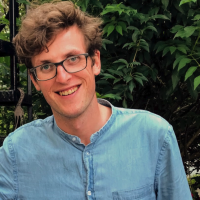
Robin McKenna (University of Liverpool)
Room DS-1950
Pavilion J.-A. De Sève, 320 Sainte-Catherine Street East
Montréal
On Friday, November 8, 2024, from 10:00AM to 12:00PM, Robin McKenna (University of Liverpool) will offer a lecture entitled “Doing Your Own (Patient Activist) Research”, organized by the Groupe de recherche interuniversitaire sur la normativité (GRIN).
The event will take place in room DS-1950 of Pavilion J.-A. De Sève, at the Université du Québec à Montréal (UQÀM), 320 Sainte-Catherine Street East. The conference will also be presented on Zoom.
This talk is about the author’s work in progress. If you wish to access the article in question, please contact us at grin.normativity@gmail.com.
Abstract
The slogan “Do Your Own Research” (DYOR) is often invoked by people who are distrustful, even downright sceptical, of recognized expert authorities. While this slogan may serve various rhetorical purposes, it also expresses an ethic of inquiry that valorises independent thinking and rejects uncritical deference to recognized experts. This paper is a qualified defence of this ethic of inquiry in one of the central contexts in which it might seem attractive. I use several case studies of patient activist groups to argue that these groups often engage in valuable independent research that advances biomedical knowledge. In doing so they demonstrate the value of “lay expertise” and the epistemic as well as political necessity of not simply deferring to recognized experts. I also give some reasons why patient activist groups often produce valuable biomedical knowledge: they are examples of what I call “research collectives”. Research collectives are research communities that differ from the traditional research communities we find in universities and research institutes in that their members typically lack formal relevant scientific credentials and training. But they are similar in that they have internal structures—training procedures, norms of discussion, venues for holding discussions—that facilitate the production of knowledge. I finish by suggesting that future research into the differences and similarities between research collectives and traditional research communities is required.



